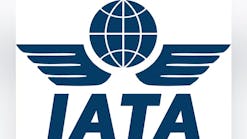Aviation Leaders Call for a Blending Mandate to Ramp-up Adoption of Sustainable Aviation Fuels
Corporate members of the Clean Skies for Tomorrow initiative (CST) have developed a joint strategy for accelerating the transition to carbon neutrality in aviation in Europe by increasing uptake of sustainable aviation fuels (SAFs) over the next decade.
Clean Skies for Tomorrow (CST) is a coalition of leading airlines, airports, manufacturers, and fuel providers working together to find solutions for reaching net-zero emissions from global aviation by mid-century. European CST Champions include: Airbus, Boeing, DPDHL, Groupe AdP, Heathrow Airport, IAG, KLM Royal Dutch Airlines, Lufthansa, Neste, Ørsted, Royal Schiphol Group, Shell, SkyNRG and Velocys. CST is convened by the World Economic Forum and supported by the Energy Transitions Commission.
Aviation now accounts for 3.6% of total greenhouse gas (GHG) emissions in the EU and, despite the COVID-19 crisis, its contribution is set to continue to increase over the coming decades in the absence of coordinated action from industry and policy. As the EU and the UK refine their strategy to deliver on their respective net-zero emissions targets, it is crucial that they establish a coherent and decisive policy package in support of SAFs to simultaneously drive up SAF production and consumption, and to unlock cost reductions that will benefit the whole aviation sector.
European CST members have devised a policy package to support the adoption of SAFs in Europe that includes measures aimed at increasing both SAF supply and demand. It is vital that these policies work hand in hand to simultaneously boost production and consumption of SAFs in a strategic and sequenced manner and that they are coherent with the technically feasible pace of production ramp-up to avoid supply bottlenecks and price volatility.
1. Support innovation to bring lignocellulosic/bio-waste and power-to-liquid pathways to market. Given limits on future supply of feedstock, bringing SAF uptake in Europe to a meaningful scale will not be possible by relying exclusively on technology pathways commercially available today. Further research and development support to the technologies with the highest potential for cost disruption and with the most sustainable sources of feedstock – i.e. biofuels from lignocellulosic feedstocks and power-to-liquid pathways – is therefore required.
2. Support SAF provision through price floors guaranteed by government during the early stages of deployment. The existence of a market for SAFs is currently limited due to the price difference between SAF and conventional jet fuel. Policy mechanisms to secure a price floor for SAF output will be crucial for making new SAF plants economically viable, especially in the early stages of deployment while regulations incentivizing SAF demand (e.g. fuel mandates) are not yet in place.
3. Support early deployment by de-risking investment in the first wave of production facilities. Even in a favorable policy context, investment in first-of-a-kind production facilities will entail a level of technology and commercial risks that lead to high financing costs and long timelines to raise capital for SAF plants. This will likely remain true for the following wave of projects during the first decade of SAF deployment. Different forms of public financial support from public investment funds, national governments, regional development banks and international financial institutions should therefore be used to help de-risk these projects and secure upfront private capital investment.
4. Announce in 2021 a SAF blending mandate for European aviation to be enforced by no later than 2025 with a blending level increasing progressively over time to 2050. The obligation should initially apply to intra-European flights, ideally encompassing both the EU and the UK. This will serve as a powerful incentive to boost production and secure investment in SAFs. Public financial support will be required to compensate for the effect of competitive distortions. Additional measures will be needed by 2030 at the latest to ensure the decarbonization of long-haul aviation. Further work will be required to determine the exact appropriate design of such a blending mandate as well as appropriate levels of blending through time given feasible ramp-up of SAF production.
The aviation industry finds itself at a critical juncture in history. Amid arguably the worst crisis it has ever faced, it must also contend with finding a viable decarbonization strategy to preserve its mandate to operate and help avoid future climate crises. With appropriate government support, the current situation could offer an opportunity to re-set the industry along a more sustainable path.
“The aviation sector is facing a pivotal time in its history and must now meet the dual challenge of the economic and environmental impact. Key to the sector reaching carbon neutrality is the use of sustainable aviation fuels,” said Christoph Wolff, head of mobility industries at the World Economic Forum.
“There is no technical barrier to the rapid deployment of sustainable aviation fuels. But a coordinated effort is required to scale up production and drive down the cost of these fuels in the next decade. Industry leaders are ready to back a blending mandate with appropriate support from policy,” commented Faustine Delasalle, director, Energy Transitions Commission.

